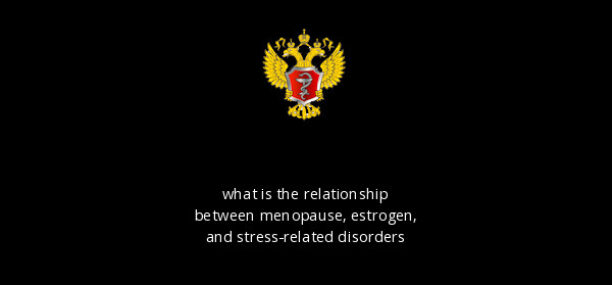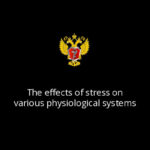Abstract
The interplay between menopause, estrogen, and stress underscores the importance of holistic approaches to menopausal health that consider the complex interactions between hormonal, physiological, and psychological factors. By addressing stress-related concerns and supporting emotional well-being, women can navigate the menopausal transition with greater resilience and maintain optimal health and quality of life
What is the relationship between menopause, estrogen, and stress-related disorders?
Cellular stress, along with physiological and psychological stress, can significantly impact women’s health during menopause and beyond. Estrogen, in particular, plays a multifaceted role in modulating stress responses and maintaining emotional well-being. Here’s a deeper look at the relationship between menopause, estrogen, and stress-related disorders:
Estrogen and Cortisol (Stress Response):
Estrogen has neuroprotective and mood-regulating effects in the brain. It influences the production, release, and activity of neurotransmitters such as serotonin, dopamine, and norepinephrine, which are involved in mood regulation and stress response.
Estrogen also affects the hypothalamic-pituitary-adrenal (HPA) axis, the primary stress-regulating system in the body. It modulates the secretion of stress hormones such as cortisol and adrenocorticotropic hormone (ACTH), helping to dampen the stress response.
Impact of Menopause on Stress:
The decline in estrogen levels during menopause can disrupt the delicate balance of neurotransmitters and stress hormones, making women more vulnerable to stress-related disorders such as anxiety, depression, and mood swings.
Physiological changes associated with menopause, such as hot flashes, sleep disturbances, and hormonal fluctuations, can exacerbate stress symptoms and affect overall well-being.
Menopause-related symptoms and hormonal changes may also contribute to increased irritability, mood swings, and difficulty coping with everyday stressors.
Risk of Stress-Related Disorders:
Early menopause, whether natural or induced, may further increase the risk of stress-related disorders and mood disturbances. Women experiencing premature ovarian insufficiency (POI) or surgical menopause at a younger age may face unique challenges in adapting to hormonal changes and managing stress.
Chronic stress and unresolved psychological issues during menopause can have long-term consequences for mental health, increasing the risk of conditions such as depression, anxiety disorders, and cognitive decline.
Management Strategies:
Comprehensive menopausal care should address not only physical symptoms but also emotional and psychological well-being. Healthcare providers should screen for signs of stress-related disorders and mood disturbances during menopause evaluations.
Treatment options may include hormone therapy, psychotherapy, cognitive-behavioral therapy (CBT), relaxation techniques, stress management strategies, and lifestyle modifications.
Incorporating regular exercise, mindfulness practices, social support, and self-care activities into daily routines can help alleviate stress, improve mood, and enhance overall resilience during menopause.
Verified by: Dr.Diab (March 29, 2024)
Citation: Dr.Diab. (March 29, 2024). what is the relationship between menopause, estrogen, and stress-related disorders. Medcoi Journal of Medicine, 3(2). urn:medcoi:article32646.














There are no comments yet
Or use one of these social networks